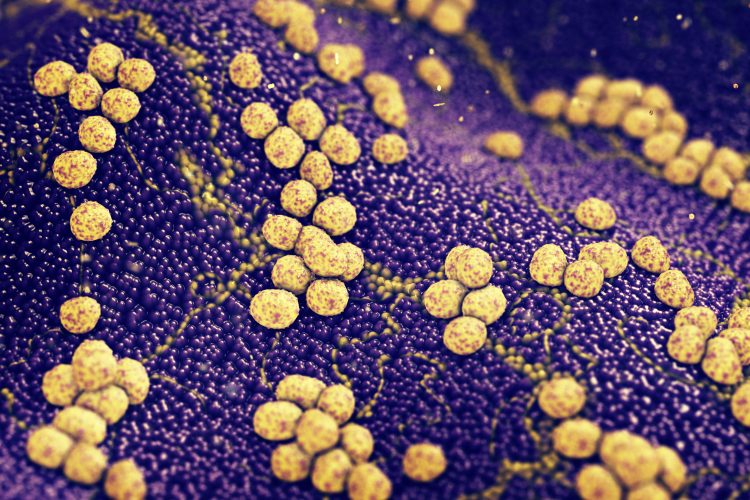Novel lysin-based antibacterial agent could help combat MRSA
Posted: 7 September 2020 | Hannah Balfour (Drug Target Review) | No comments yet
Researchers have engineered F12, a lysin-based antibacterial drug, to have limited negative side-effects and so it can be administered repeatedly without loss of efficacy.


In a new study, researchers show how their engineered lysin-based antibacterial agent, F12, may enable safe, repeated dosing of the deadliest drug-resistant bacteria, Methicillin-resistant Staphylococcus aureus (MRSA).
The team said that in recent years, enzymes called lysins, which are naturally produced by microbes and their associated viruses, have shown promise for treating S. aureus, a bacterium that can rapidly develop resistance to many antibiotics.
Karl Griswold, corresponding author of the study published in Science Advances and associate professor of engineering at the Thayer School of Engineering at Dartmouth College, US, explained: “Lysins are one of the most promising next-generation antibiotics. They kill drug-sensitive and drug-resistant bacteria with equal efficacy, they can potentially suppress new resistance phenotypes, and also have this laser-like precision.”
The team added that, despite their potential, the development of lysin antibiotic agents has been slowed because they induce the human immune system to produce antidrug antibodies, which can cause potentially fatal side effects, including hypersensitivity reactions.
To overcome this issue, researchers at Dartmouth (in collaboration with those at The Lundquist Institute at Harbor-UCLA Medical Center, Lyticon and Stealth Biologics) engineered and patented F12, a new lysin-based antibacterial agent. F12 is designed to evade the immune system, through a T cell epitope deletion and therefore does not cause the same negative side effects as unmodified lysins.
The researchers explained that F12 is the first lysin-based treatment with the potential to be used multiple times on a single patient, making it ideal to treat particularly persistent drug-resistant and drug-sensitive infections. In preclinical studies testing F12 in rabbits, mice with partially-humanised immune systems and extracted human immune cells, the efficacy of the drug did not diminish with repeated doses. The team pointed out this has advantages over two other anti-MRSA lysin treatments currently in clinical trials, which are only designed to be used a single time.
“We have engineered this super potent, super effective anti-MRSA biotherapeutic, and we have done it in a way that renders it compatible with and largely invisible to the human immune system. By making it a safer drug, we have enabled the possibility of dosing multiple times in order to treat even the most highly refractory infections,” said Griswold.
Griswold concluded: “This is the first report of a translation-ready deimmunized lysin, and F12 has serious, bonafide clinical potential,” and that he believes the antibacterial agent could be ready for human clinical trials by 2023.
The authors added that their future experiments will examine the synergistic effects of F12 with standard-of-care antibacterial chemotherapies, because their preliminary results suggest the combinations are extremely potent and suppress drug-resistance phenotypes.
Related topics
Antibiotics, Drug Development, Drug Targets, In Vitro, In Vivo, Research & Development, Therapeutics
Related conditions
antibiotic resistance, methicillin-resistant Staphylococcus aureus (MRSA), Staphylococcus aureus
Related organisations
Dartmouth College, Stealth Biologics, The Lundquist Institute at Harbor-UCLA Medical Center
Related people
Karl Griswold


